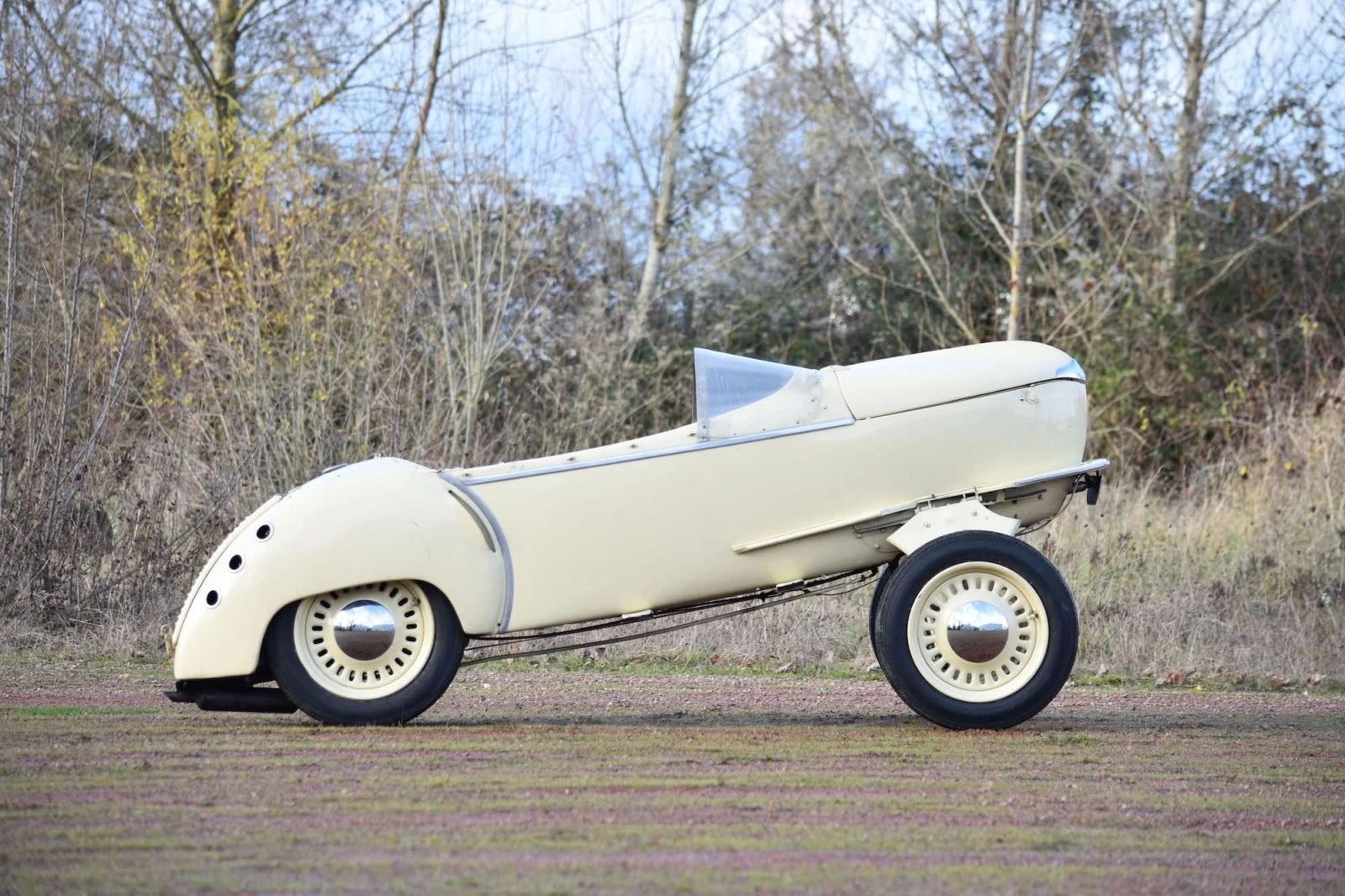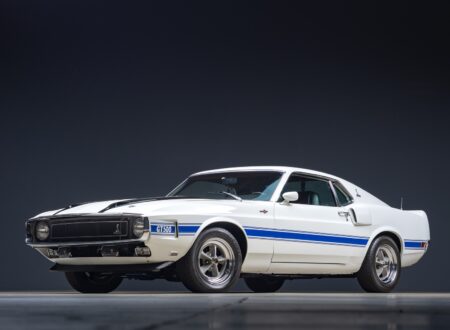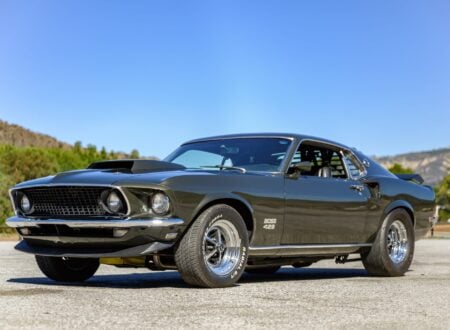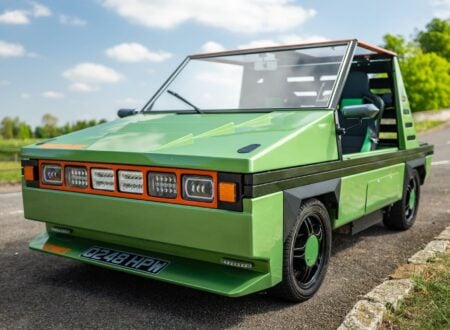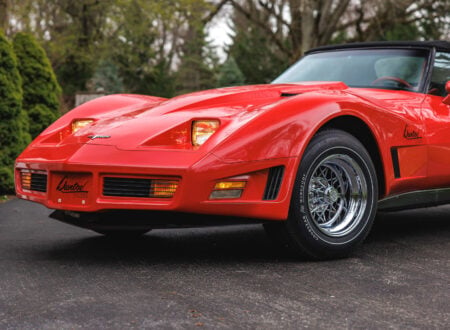This is the Reyonnah 175 Prototype N°1, as the name suggests it’s the first Reyonnah 175 prototype and had French automotive history played out slightly differently, this car could have been just as famous as microcars like the Brütsch Mopetta, the Peel P50, and the Messerschmitt KR200.
Perhaps the single best feature of the Reyonnah 175 is the fold-in front wheels, when parking this allows the driver to lift the front of the car, the front wheels fold in, and the car can be rolled into a motorcycle parking space.
Fast Facts – Reyonnah 175 Microcar
- The Reyonnah 175 was the brainchild of Frenchman Robert Hannoyer, the name of the car is Hannoyer’s surname in reverse (an ananym), and he developed it out the back of his wife’s store over a period of three years in the late 1940s.
- The post-WWII period in Europe was a time of strict austerity, gasoline and raw materials were in short supply, as a result small motorcycles, motor scooters, and microcars became popular forms of transportation for millions of Europeans.
- Robert Hannoyer’s Reyonnah microcar has seating for two in tandem, a folding roof, a rear mounted engine, small windscreen, and four wheels. The two rear wheels have a narrow track and the two front wheels have a wide track for stability, but they can be folded in for easy parking.
- The car was first shown at the 1950 Paris Auto Show where many orders were taken, the car caused a buzz and demand was strong, but mass-production required a major automaker to come onboard and none were forthcoming. Just 16 are thought to have been made.
The French And Their Fabulous Machines
Since the invention of the automobile, France has been responsible for many of the motoring world’s most unusual cars. Vehicles like the Citroën 2CV and its four-wheel drive sibling the Citroën 2CV 4×4 Sahara, the Helicron, Citroën Méhari, Matra Djet, Renault 4, Citroën DS, Bugatti Type 32 “Tank Car,” the Panhard CD, and countless others.
This phenomenon may be explained by the fact that the French like to drink at lunch on workdays. Whatever the reason, it’s given the car world some variety and innovation that it would never have seen otherwise.
Above Video: This film shows the Reyonnah 175 in action, with its creator showing you around the vehicle and tailing about its history. It’s in French however YouTube does offer auto-translated closed captions, if you click the gear icon in the lower right of the screen and select “Subtitles/CC.”
Robert Hannoyer’s Unusual Reyonnah 175
The Reyonnah microcar started life somewhat humbly, as a hand-built prototype built by a Parisian man named Robert Hannoyer out behind his wife’s shop in the late 1940s.
He spent three years on the design and development immediately after WWII, when raw materials and gasoline were in very short supply. Hannoyer realized that the vast majority of cars on the streets of Europe contained just one person, perhaps two.
The Reyonnah was first shown to the world at the 1950 Paris Auto Show where it attracted quite a response, including many orders from people who wanted one for themselves. Hannoyer also took the car to a number of other shows and concours events – it never failed to draw a crowd though sadly no major automakers took interest in the project.
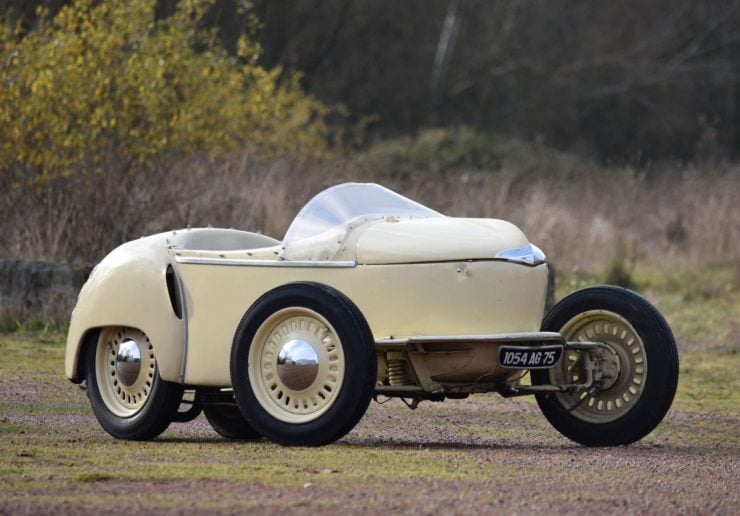

Hannoyer built approximately 16 of them in total before the project was shut down for good. The clever design of the Reyonnah and its ability to park in such a small space made it a better solution for many prospective microcar buyers, and it would likely have been successful if it had been produced in volume.
Reyonnah 175 Microcar Specifications
Hannoyer designed a car that could carry up to two people while using as little fuel and requiring the least amount of raw materials possible. His first prototype, the car you see here, was powered by a rear-mounted 175cc single-cylinder AMC engine with a three-speed gearbox powering the rear wheels.
The car can accommodate two people sitting in tandem, and unlike its three-wheeled contemporaries, the Reyonnah microcar has excellent stability due to its four-wheels. The rear two wheels are closer together and the front two are wider apart, however if you lift the front of the car the two front wheels fold inwards – meaning you can use a motorcycle parking bay.
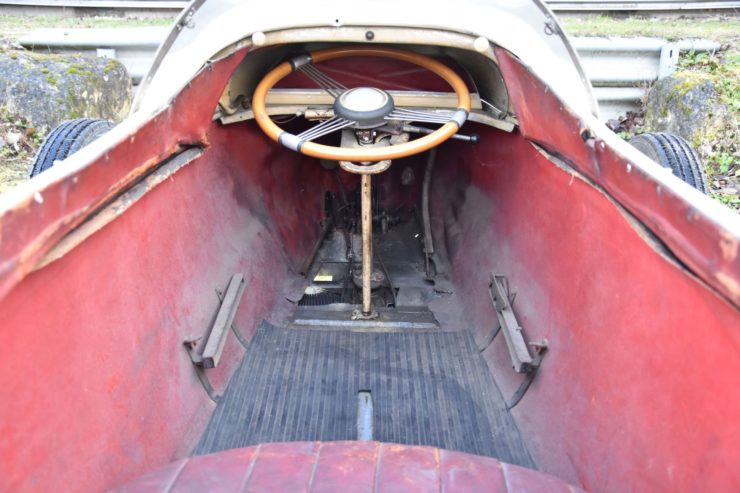

For practicality Hannoyer designed the car with a windscreen and a folding top, later versions also had headlights and indicators.
The 1951 Reyonnah 175 Prototype N°1 Shown Here
The car you see here is the first of the Reyonnahs, prototype number one. This is the car that was taken by the Automobile Club de France (ACF) for testing where it traveled 50 km at an average of more than 95 km/h at the Montlhéry autodrome.
This car also took part in the 1951 Paris-Chartres-Paris, and it participated in several concours d’elegance, including Enghien-les-Bains with actress Paulette Dubost.
Robert Hannoyer kept this car for many years, and after his passing it remained with his family for sentimental reasons, though they have now decided to part with it so it can receive the care it needs. It requires a restoration or a recommissioning, though some work has already been done and the car is running and driving.
If you’d like to read more about this unusual microcar or register to bid you can click here. It’s due to cross the auction block in Paris on the 18th of March with a price guide of $67,900 – $90,500 USD.
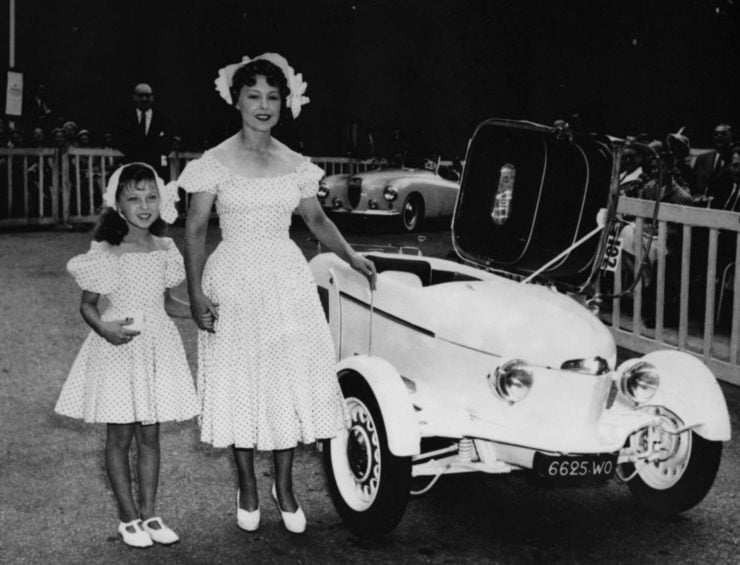
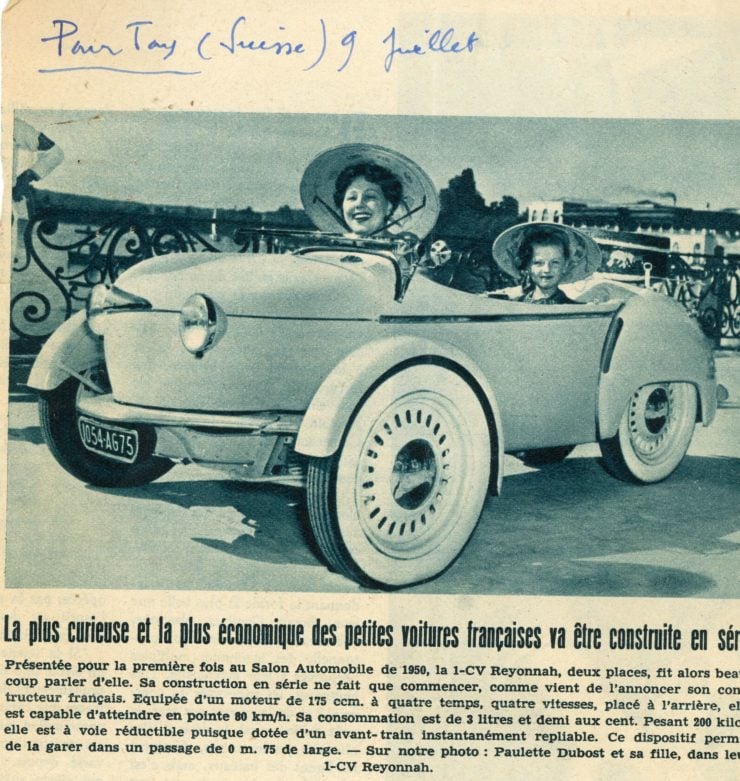
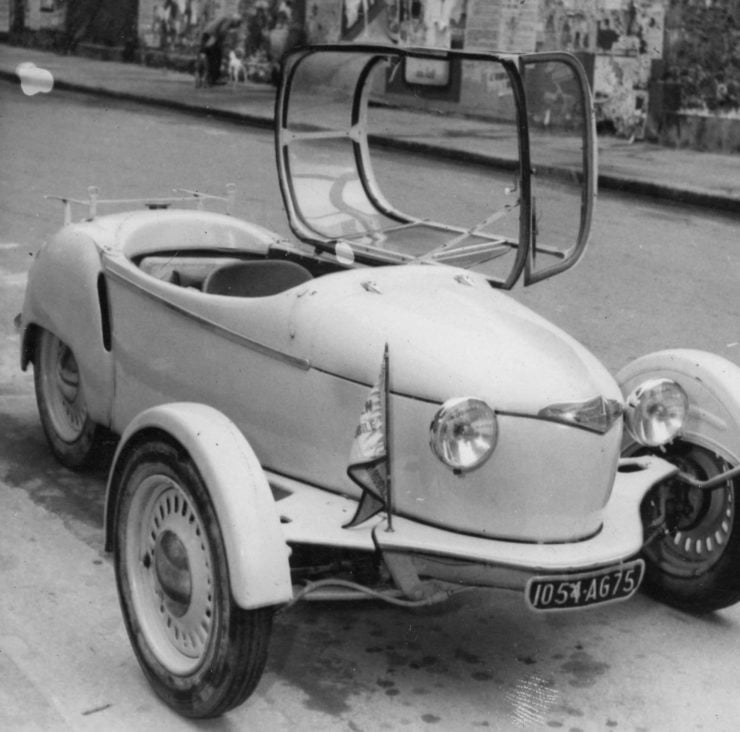
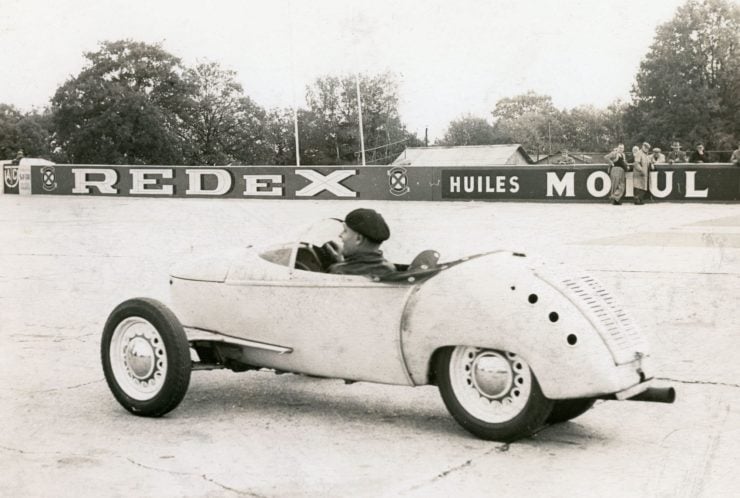
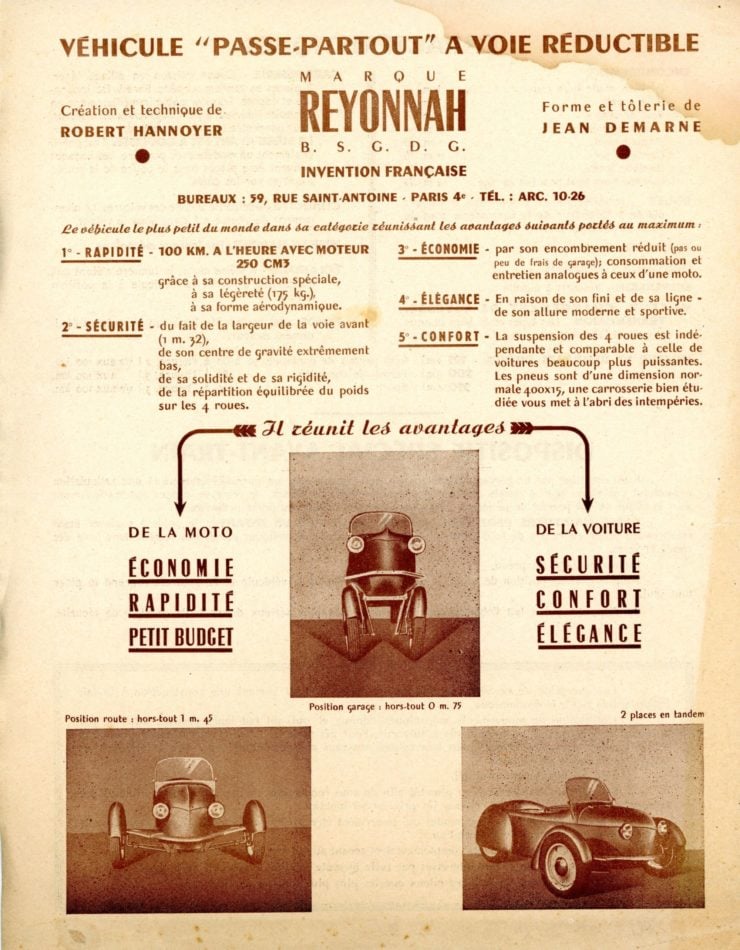
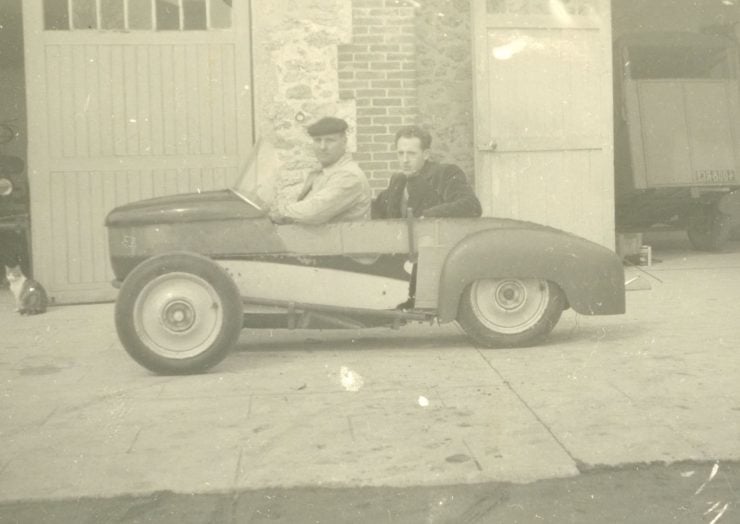
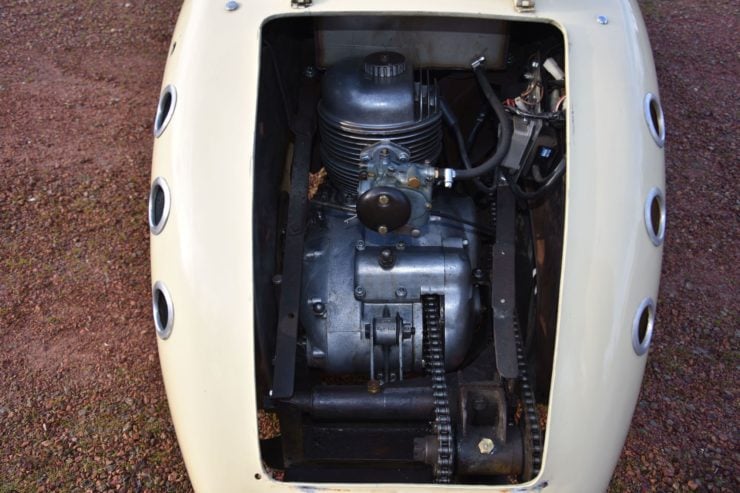
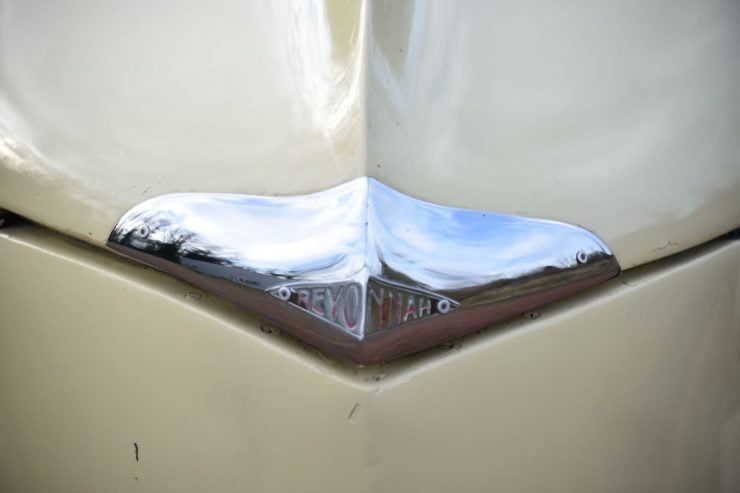
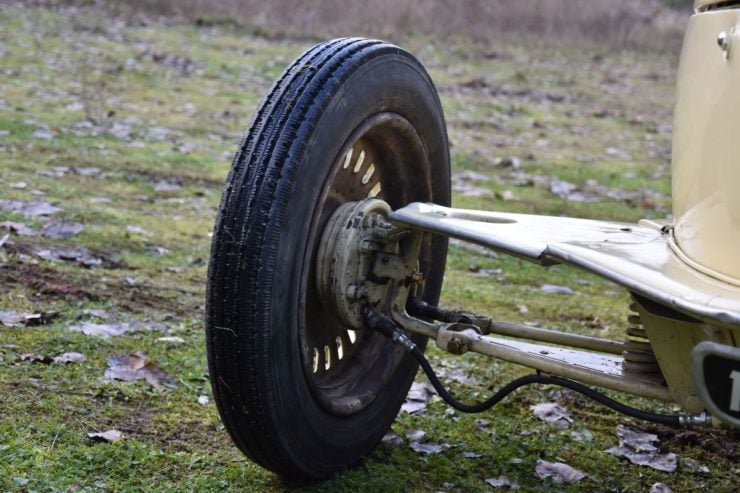
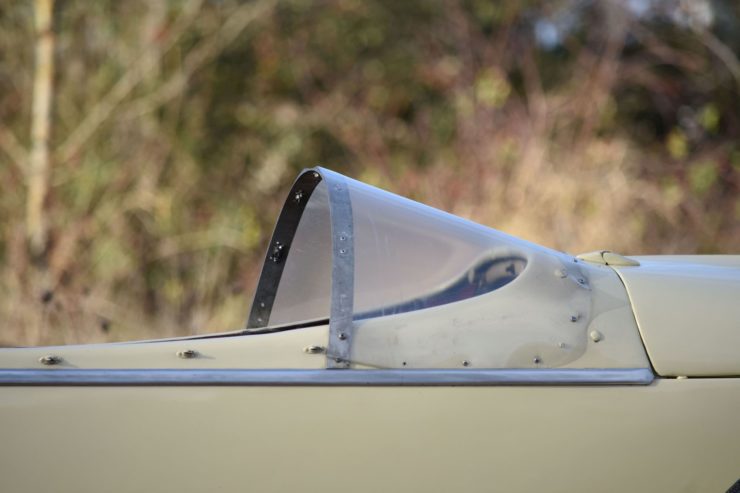
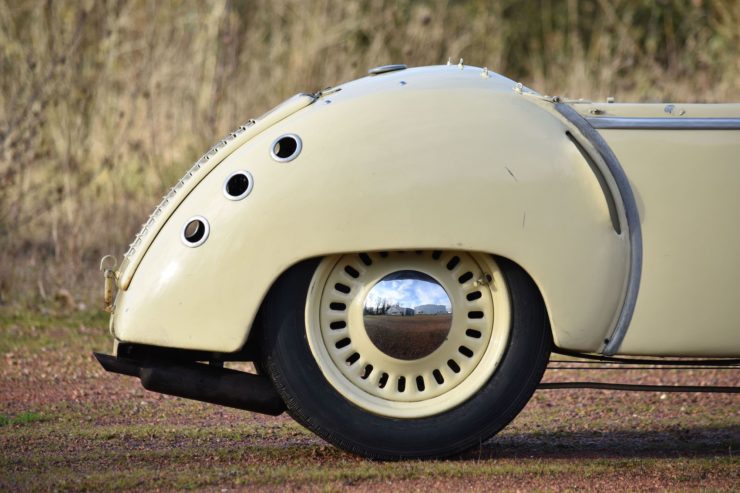
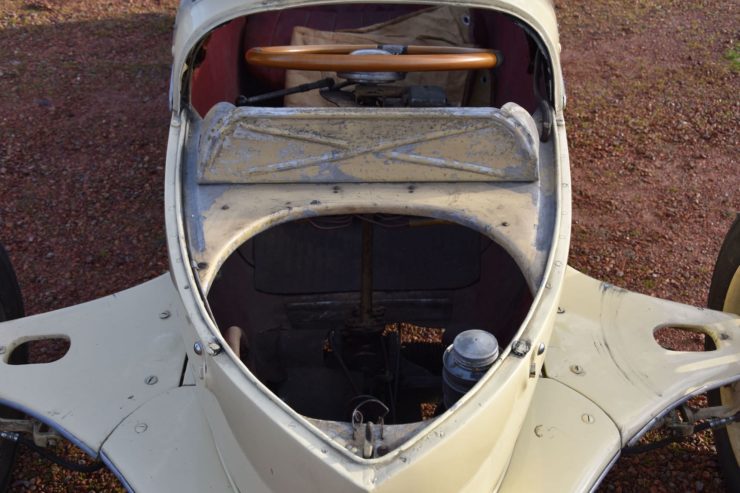
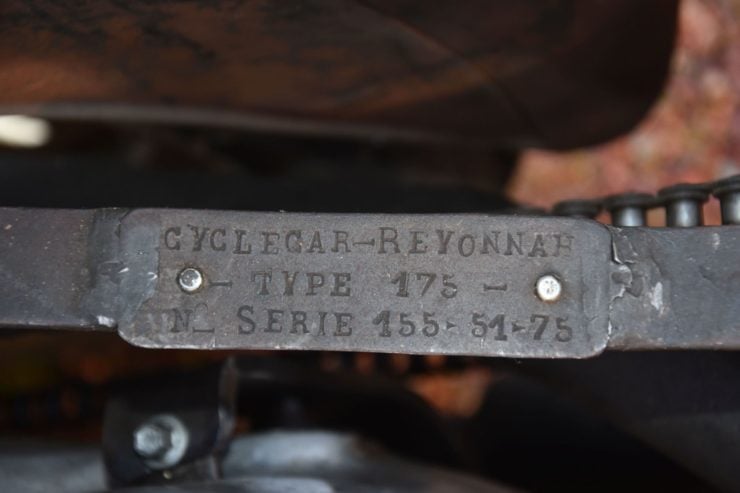
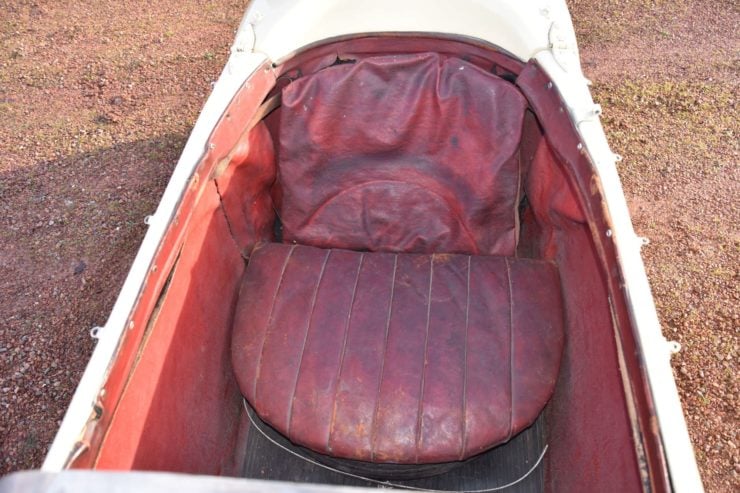

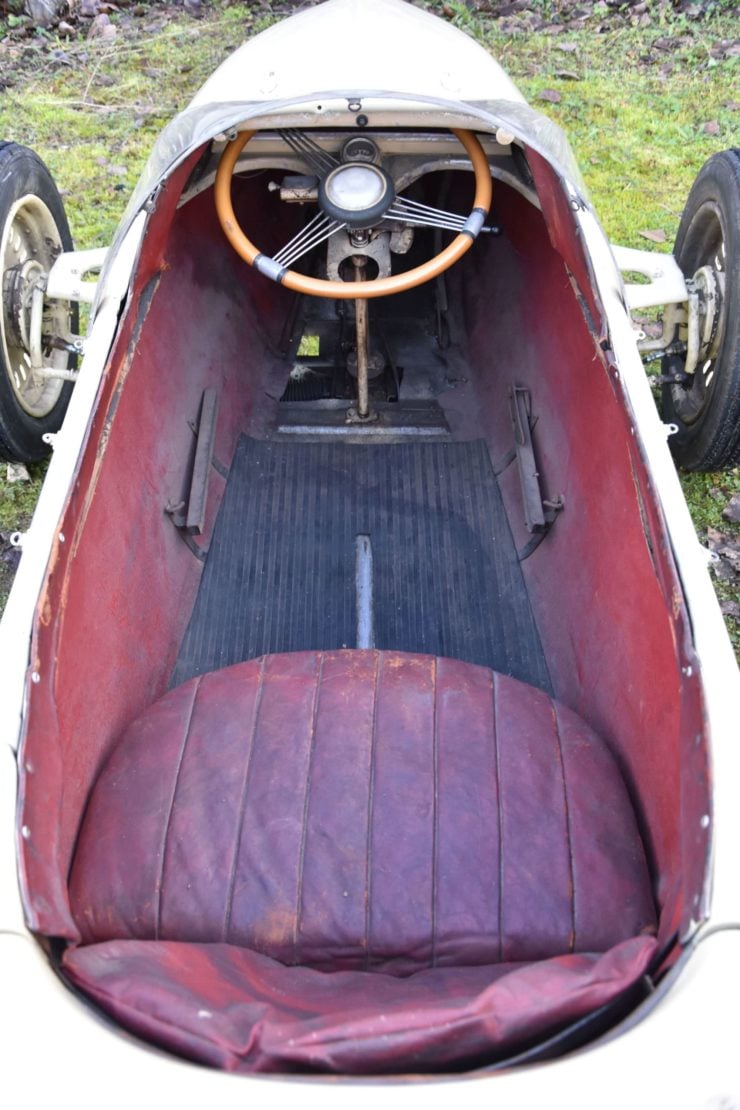
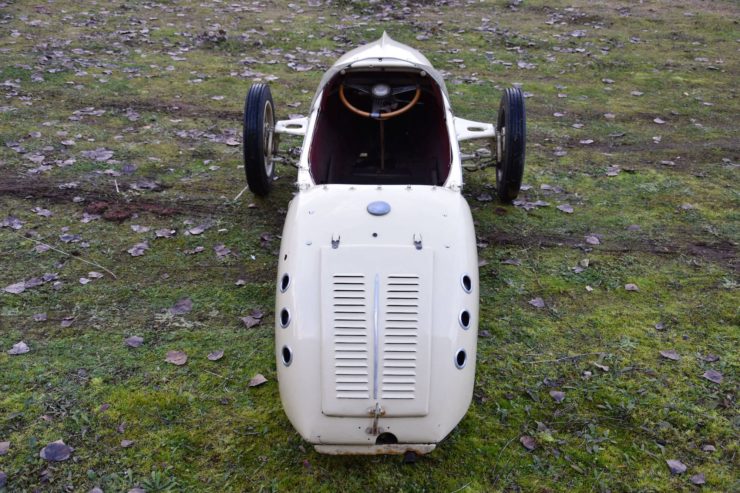
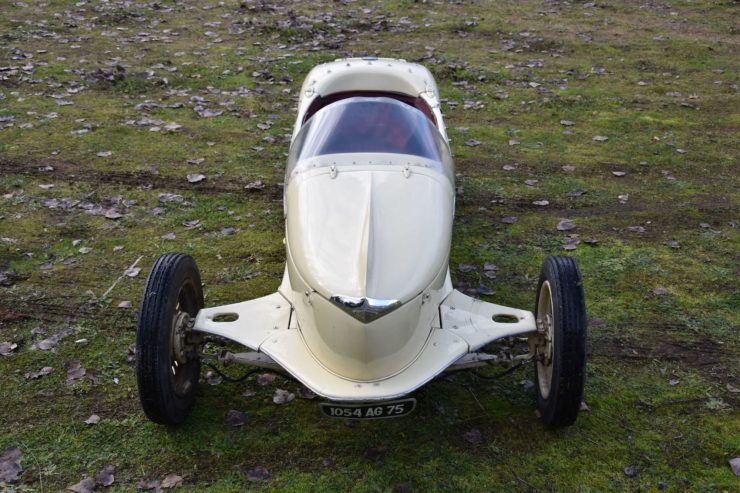
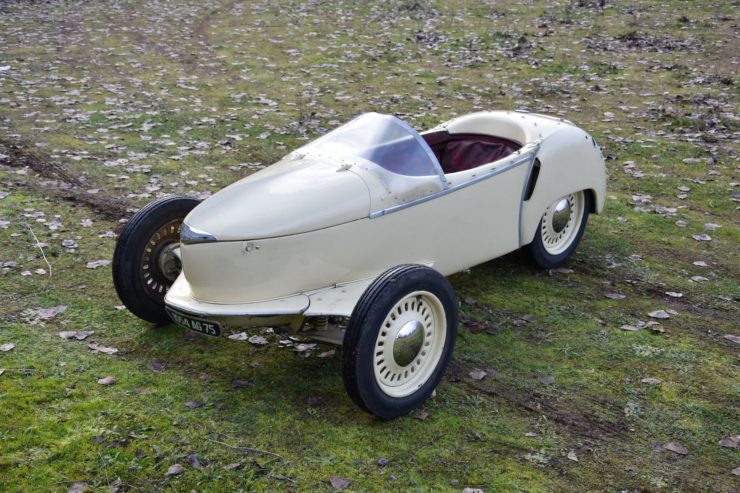
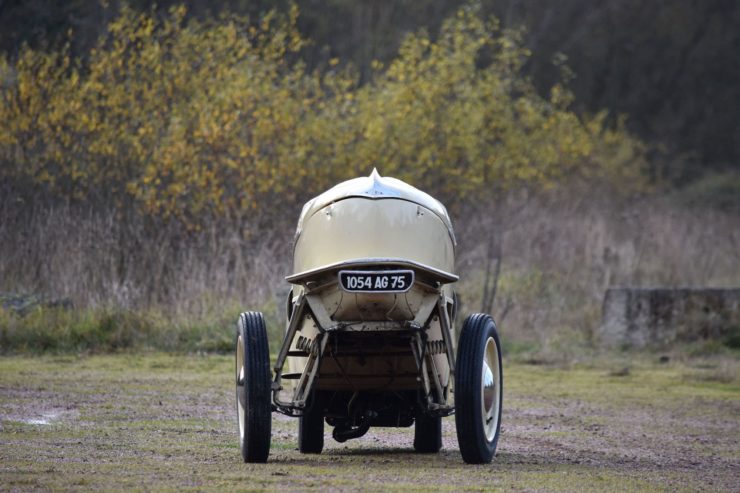
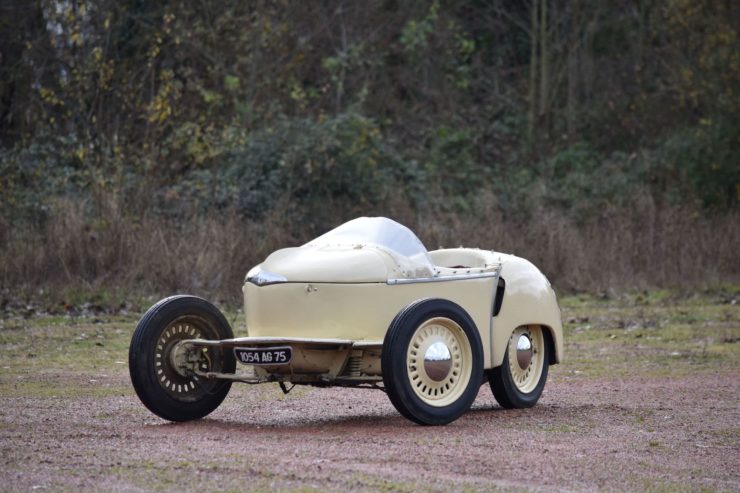
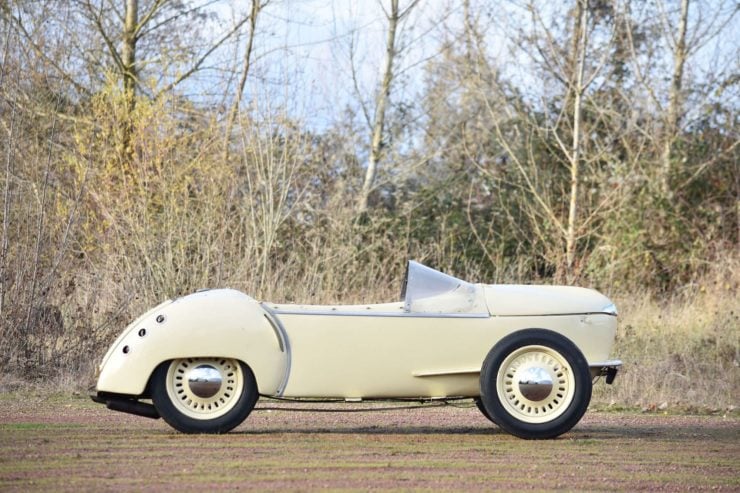
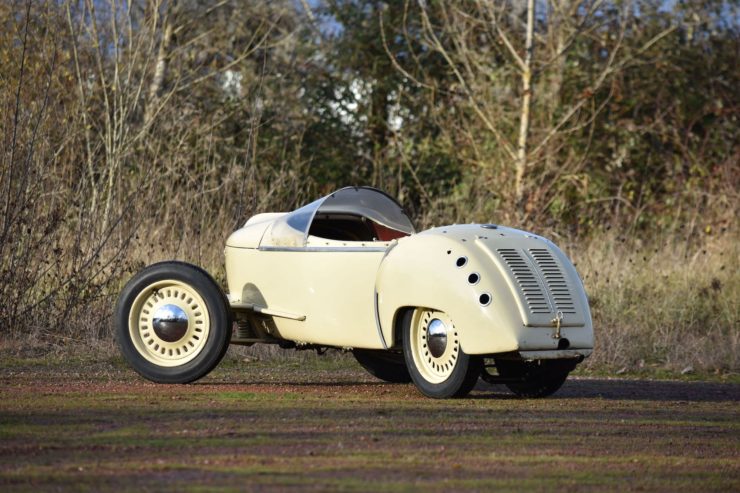
Images courtesy of Artcurial

